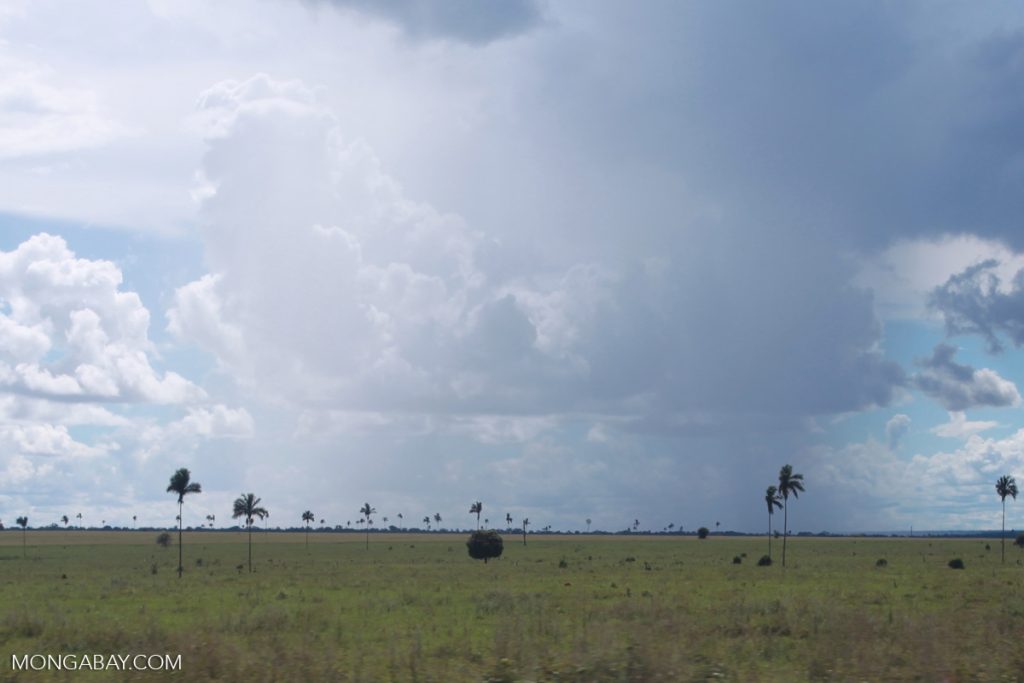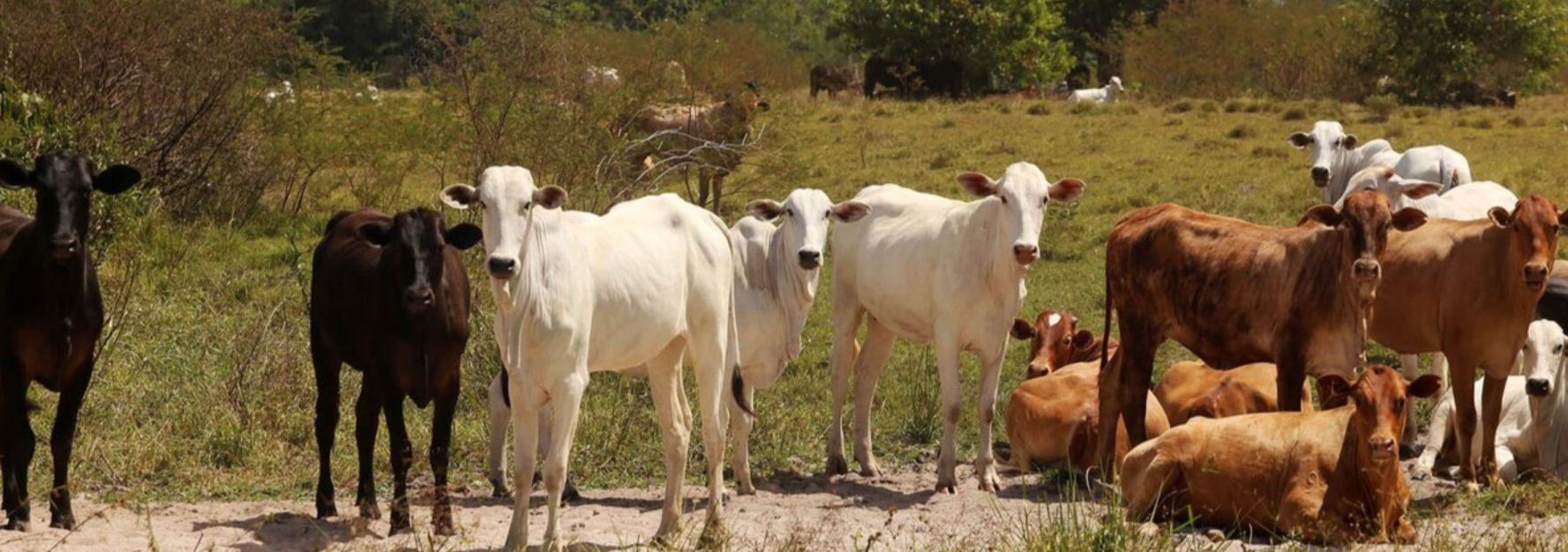This impact story was originally published by Mongabay here.
- A new traceability program will keep tabs on the millions of cattle present throughout the state of Pará, in northern Brazil, where the Amazon Rainforest has been hit especially hard by deforestation from cattle ranching.
- The tagging program aims to monitor all transported cattle transported through the state by December 2025 and the permanent herd of approximately 24 million cattle by December 2026.
- The program was created last week through a decree signed by Pará governor Helder Barbalho following the introduction of the Leaders Declaration on Food Systems, Agriculture and Climate Action at COP28, the annual UN climate conference.
One of Brazil’s largest states is ramping up efforts to monitor cattle ranching in the hopes of combatting deforestation and reducing carbon emissions.
A new traceability program will keep tabs on the millions of cattle present throughout the state of Pará, in northern Brazil, where the Amazon Rainforest has been hit especially hard by deforestation from cattle ranching.
“The intention is that we can demonstrate that sustainable livestock farming can converge with environmental preservation and respect for environmental standards,” said Pará governor Helder Barbalho.
The program aims to tag and monitor all cattle transported through the state by December 2025 and the permanent herd of approximately 24 million cattle by December 2026. It’s the country’s first mandatory cattle tracing requirement with a focus on the environment.
State officials will have to tag cattle on the over 295,000 farms across a land area larger than France, Spain and Norway combined. The tags allow officials to overlay environmental property data with information on the cattle’s movements.
Cattle have been proven difficult to track in Latin America due to direct and indirect suppliers making transactions across different ranches, slaughterhouses and buyers without proper documentation. Even cattle tagging systems have been susceptible to counterfeiting and fraud.

Pará’s program has the backing of 13 organizations across the public and private sector, including producers, industry associations and civil society. It was created last week through a decree signed by Barbalho following the introduction of the Leaders Declaration on Food Systems, Agriculture and Climate Action at COP28, the annual UN climate conference. The declaration aimed to bring food production to the forefront of discussions on climate change.
“The commitment of world leaders to integrate food systems approaches (combining food production, consumption and loss and waste) in climate action is exactly what we need at a time when a 1.5°C (2.7°F) future looks harder and harder to achieve,” WWF Global Food Practice Leader João Campari said in a statement.
Cattle ranching in Brazil makes up nearly 24% of global annual tropical deforestation, according to The Nature Conservancy, one of the groups supporting the new traceability program. Cattle ranching is also responsible for 10% of global carbon emissions.
Pará is one of the worst hit by the phenomenon. Around 40% of all deforestation in the Amazon has taken place there since 2001 — much of it connected to cattle ranching.
“The public commitment to full transparency and traceability in Pará’s cattle sector by 2025 will tackle a critical food system contributing to climate change and habit loss in the Amazon,” said The Nature Conservancy CEO Jennifer Morris.
Banner image: Cattle in Brazil. Photo courtesy of Bruno Cecim/Agência Pará.
Editor’s Note: A previous version of this article mistakenly said cattle ranching in Brazil makes up nearly 34% of global annual tropical deforestation. It actually makes up 24%.
